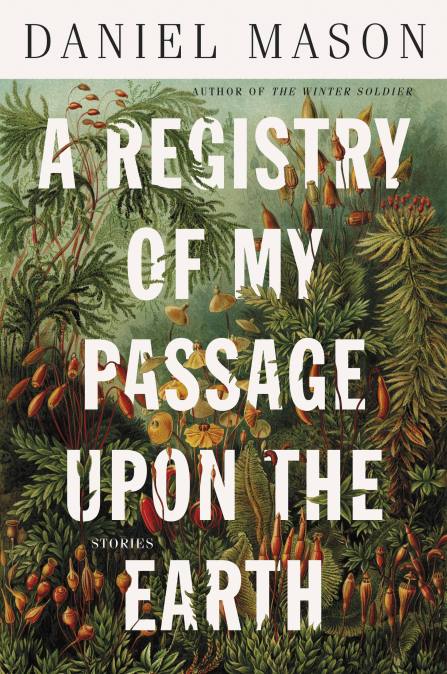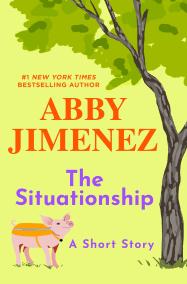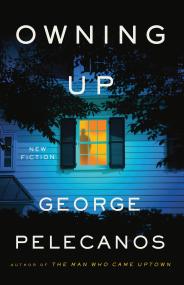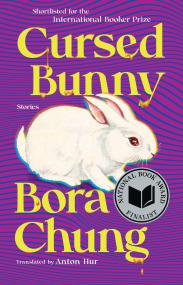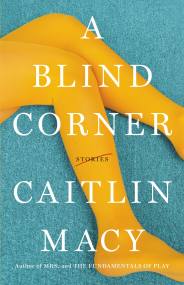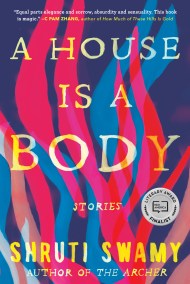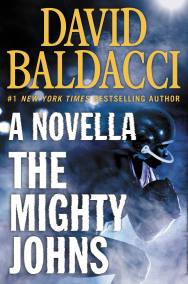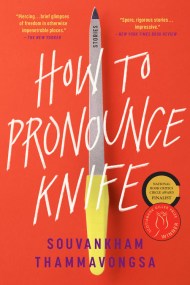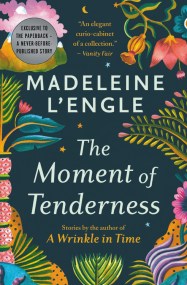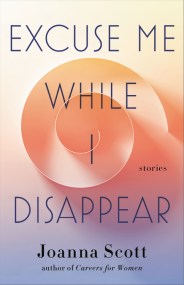Shopping Cart
A Registry of My Passage upon the Earth
Stories
Description
A Pulitzer Prize Finalist: This collection of moving short stories is “a treasure trove of lush scene setting in faraway times and places” (Alexis Burling, San Francisco Chronicle).
On a fateful flight, a balloonist makes a discovery that changes her life forever. A telegraph operator finds an unexpected companion in the middle of the Amazon. A doctor is beset by seizures, in which he is possessed by a second, perhaps better, version of himself. And in Regency London, a bare-knuckle fighter prepares to face his most fearsome opponent, while a young mother seeks a miraculous cure for her ailing son.
At times funny and irreverent, always moving and deeply urgent, these stories—among them a National Magazine Award and a Pushcart Prize winner—cap a fifteen-year project. From the Nile's depths to the highest reaches of the atmosphere, from volcano-racked islands to an asylum on the outskirts of Rio de Janeiro, these are tales of ecstasy, epiphany, and what the New York Times Magazine called the "struggle for survival . . . hand to hand, word to word," by "one of the finest prose stylists in American fiction."
A Library Journal Best Book of 2020
What's Inside

THE ECSTASY OF ALFRED RUSSEL WALLACE
I wrote a letter to [Darwin] in which I said that I hoped the idea would be as new to him as it was to me, and that it would supply the missing factor to explain the origin of species. I asked him if he thought it sufficiently important to show it to Sir Charles Lyell, who had thought so highly of my former paper.
A.R.W., My Life
He was a man entranced by life’s variety. As a child, he had collected—fossil, flower, beetle, stone—and it was as a collector that he would come to understand his purpose. Forced by his father’s debts to abandon school in his thirteenth year, he learned from what he could gather: broadsheets and belemnites, discarded primers, Milton and Crusoe. Let the great men of Oxford and Cambridge proceed with their philosophies. No: the machinations of a Creator with the whimsy to make birds-of-paradise, place hearts on the left, and twist seashells to the right—this was beyond his ken. But the search! The search was his calling. Hadn’t a phrenologist told him he would always be seeking? Of the twenty-seven brain organs of Gall, he had large protuberances in Ideality and Wonder. When he contemplated nature and all her permutations, it filled him with an ecstasy that at times felt like lust.
To Samuel Stevens, his agent in London, he sent his collections, destined for cabinets of curiosities and municipal museums, and from Stevens came the means to finance his expeditions. From Wales, he left for the River Amazon, where bees entangled themselves in his beard and his legs erupted with the bites of the pium. In Barra, he hypnotized street urchins. In the slack-water lagoons at São Gabriel, pink dolphins circled his boat. Ants attacked his bird skins, with preference for the eyes. Those specimens he wished to keep whole he bottled in cane liquor, and well into his old age, when he thought of life and its vast diversity arrayed, it smelled to him of spirits. By the time he returned to England at the age of twenty-nine, he had endured the loss of his brother to yellow fever, eight bouts of malaria, the destruction of his collections in a fire on the Sargasso Sea. To such misfortunes, he would add the general indifference of his homeland to his discoveries, his dismissal as a bug collector and a species man. He swore he would never travel again. In March of 1854, he left once more, for the Malay Archipelago, on a steamer of the P&O Line.
If, in his letters to his mother, he wrote joyfully of where he went, his physical travels were but a faint trail through the vastness of his wonder. Whether he expected great revelations from his early collections, he didn’t know; the collections were an end in themselves, the consequences of which he did not consider until the consequences seized him. When he turned, at last, to theory, one thing was clear: he did not intend to destroy faith; he intended to explain the shaping of a beetle’s horns. Should faith fall in the process, he thought (and then thought about it no more), it was a matter for theologians to resolve.
And so he was unprepared for the magnitude of the epiphany, when it came, on that spectacularly warm, tropical spring morning in 1858. Indeed, they said he had the naïveté of a child: too trusting, too awed by others’ great- ness to know that he deserved greatness himself. There were hours when he thought: I know nothing. And there were other hours, chiefly at night, waking from dreams he didn’t remember, when a different thought came: that idea, that beautiful burning idea, that recasting and refiguring and resculpting of the world, that idea burst forth from me, and me alone.
***
Later, back among Englishmen, he would say it came to him in a fit of fever. For months he had been traveling, like a nomad, through the shattered volcanoes of the Archipelago: Celebes, Sarawak, Kalimantan. Monsoons greeted his arrivals. In Singapore, he peered into the great cauldrons of American whalers. On Borneo, he shot orangs. His boat needed only to touch shore and he would vanish into the jungles with his net in hand.
He traveled, as he always did, without rest, driven by the constant fear that there were species he would miss, forms and colors he would never know. Racked by chills, thin, exhausted, he could scarcely remain upright for the entirety of his meals, and yet in the field, he moved with the same alacrity as he did during his childhood days gathering windfall from his neighbors’ apple trees, powered not by physical strength but by a momentum of mind, movement driven by movement itself, by the sun and heat and cold on his neck, by his astonishment at the natural world unfolding. From life at sea, he had acquired the habit of rising early, from the rivers and countless portages the conviction that one does not own what one can’t carry. In moments of reverie, he imagined his body light of all but the clothes on his back and the exquisite catalogue of his mind. He was thirty-four. To his mother he wrote, I am running out of time.
Bug collector, species man. It was fitting perhaps that the first fateful communication from Darwin came as a simple request for specimens of Malay domestic fowl. When that letter arrived, addressed from Down House, he couldn’t believe that it was real. Surely, he thought, it must be a prank, played on him by a friend! It was only two years before the day that would forever link his name to Darwin’s, and yet it was beyond his wildest fancies to think of him as a correspondent. He wasn’t twenty when he first read The Voyage of the Beagle, and for his entire life, when he thought of its author, he found himself a gangly, bare-chinned boy again. He had read all the great man’s works on barnacles.
He sent both a domesticated duck and a wild type from which the domesticated breed derived. And in a fit of bold- ness, he included musings on a question that had begun to occupy him, namely the appearance of variations among species, about which he had written a single essay, penned on Sarawak, published in the Annals, and generally ignored. When at last, in Macassar, after months in the jungle, he received Darwin’s reply, he opened it on the docks.
His hand trembled as he read, over and over again:
I can plainly see that we have thought much alike & to a certain extent have come to similar conclusions.
Tears sprung to his eyes. Again he read it, then folded it away and began to walk back to the shore, stopping ten yards later to check his pocket and assure himself that it was there.
I can plainly see that we have thought much alike & to a certain extent have come to similar conclusions. Did he recognize that the letter contained not only praise but a veiled intimidation? This summer will make the 20th year since I opened my first-note-book, on the question how & in what way do species & varieties differ from each other, Darwin had written. I am now preparing my work for publication. But if there was a warning in these words, it was one he didn’t notice. It was impossible that someone so great could see a bare-chinned boy as threatening. Or perhaps, forever a traveler in an- other’s country, he had known too much kindness from the strangers in his life.
And so, in Macassar, inspired, he wandered. Among the black macaques, the flapping hornbills, the wheeling Ornithoptera with satin yellow wings. From rotting jackfruits, he scraped beetles for his collections. At the edges of the rugged territory of the Bugis, he watched rivers disappear into the earth. Brown snakes tangled in his net as he ruffled through the leaves impatiently, imagining what he could find for Darwin. It was summer. He sweated, bent his spectacles so they wouldn’t slip from his nose.
Bug collector, species man. And yet now, in the patterns of the insects that he pushed pin by pin into his boxes, something greater had begun to reveal itself to him, though what it was he didn’t know. He felt as he did when, walking through the jungle, he sensed the presence of another creature following in the understory, a presence that vanished when he turned to look. At night he began to dream of a generating machine, a clanking, screeching engine, in which old species were devoured, and from which new ones emerged, blinking, into the light.
Steadily he was making his way through the Archipelago, each hour ticking toward the night the angel would meet him on Ternate. Timor, Banda, Ambon. The islands among which he found himself in the early months of the year of his discovery were lush and forbidding, racked by earthquakes, or as he wrote: tortured. By now he was distracted by the immensity of his collections, mocked by their size and his inability to explain how such diversity had come to be:
Butterflies—620 species.
Moths—2,000 species.
Beetles—3,700 species.
Bees & Wasps—750 species.
Flies—660 species.
Bugs & Cicadas—500 species.
Locusts—160 species.
Dragonflies—110 species.
On the island of Gilolo, the forests bloomed with scarlet Ixora. In an abandoned Portuguese fort, he met a Dutch corporal and quartet of listless Malay soldiers, with krises rattling as they rose up from the stones. From a lean-to near the shore, he wandered into grasses that waved high above his head. He watched mound-builders bury their eggs on the shore, noted mimicry among orioles and honeysuckers, shot a ground thrush with azure shoulders. Shaking clots of insects from coconut blossoms, he joked to his assistant that God must hold a particular affection for the bees. His malaria returned. (This fever, he wrote, this ague, familiar friend.) Sick and miserable, he crossed the short channel to the island of Ternate, with its slumbering cone, where he sought to rest. Langsats and mangosteens ringed the town. In the ruins of the palace of the Sultan, he waited for his fever to break.
If his fame would one day become inextricable from Ternate, he knew it was but a coincidence, for it was in São Gabriel on the Rio Negro that he heard the river dwellers speak of shape-shifters; on Kalimantan, in the mildewed library of the White Rajah, that he read Ovid; and on Gilolo, in the high grass, fever massing as a storm, that he thought of Malthus and of death, and once he thought of death, he could not escape her, saw the trails limned with the carapaces of beetles, saw the strangling figs, saw rot, saw fragments of bone, shores of shattered coral, sea crabs, fish curled onto the sand. The solution—that it was death that eliminates the weakest, selects varieties, and thus shapes the forms fittest for survival—was so simple and so beautiful that the moment he uncovered it, it seemed impossible that he, or any man, could have believed anything else. He had been moving toward this moment. For months he had been moving. But it was on Ternate that the answer possessed him, sliding into him like a gun bolt, and he rose feverish from his bed, carrying the vision before him (and how he could feel it, that beautiful idea in all its completion, that warmth in the recesses of his eyes), carefully, delicately, as if it were an insect he did not wish to crush, and he sat and he began to write. The life of wild animals is a struggle for existence . . .
The whole field appeared in a single moment to Apelles, wrote Ficino, in another time and another place, and aroused in him a desire to paint. And so, pencil gripped against his tremors, the bug collector worked, wrapped in blankets when struck by chill, then stripped bare against the heat inside him. Epiphany or fever, he later did not know. The hours would blur, the sweat running in rivulets down his chest, his eyes burning with salt, his penis limp and damp on the cold slats of the rattan chair. There were moments when his whole body seemed to vanish, when he sensed the hovering of a ghost or angel, delivering inspiration from a world beyond his own. He was but a scribe. And when he awoke the following morning and found the essay complete, delivered to him by that other, it didn’t occur to him to send it to anyone but Darwin.
He mailed it on March 9, 1858, in a packet of mail sent on a Dutch schooner bound for Java. His letter accompanying it was short, his words deferential. The essay was titled “On the Tendency of Varieties to Depart from the Original Type,” and sought to explain the extraordinary modifications of form, instincts, and habits of the natural world. With luck the mail would be in Darwin’s hands in ten weeks: mid-May. And Darwin would respond directly, as he had up until that day, his reply arriving in Ternate as early as July.
Letter steaming toward London, he felt a great emptiness. He planned to return to the forest, but in the days that followed, he haunted the shore, watched the horizon in expectation, as if somehow the idea could vault the seas. When he could bear the wait no longer, he set sail in the Hester Helena for New Guinea, hoping that the rhythm of collection would calm the running of his mind.
He landed at Dorey, on the northeast coast. The island was vast and mist-shrouded. He had wished to escape the unbearable joy of his discovery, fleeing as one might flee a desire from which there is no deliverance. But everywhere he looked he saw the struggle for existence. He could not happen upon an insect without wondering how every trait had saved it from nature’s forge. Even the most delightful forms and colors were darkened by death’s shadow. This daily and hourly struggle, he wrote in his journals. And again: This incessant warfare.
In the dim light of the Papuan forest, he found deerflies with horns beneath their eyes. He sucked the sweet wet air of mosses, identified the leeches that gathered on his ankles, hunted tree kangaroos and the elusive Cuscus. Wrapped in his reverie, he wandered without aim. He knew he was incautious, setting off into unfamiliar forests, now without assistants, unaware of the trail he followed and how he would return. But he heeded neither his good sense nor the imploring of his men. At night, back in his hut, they pulled snakes down from the rafters. Fever lit through his crew. Dysentery took away his boy Jumaat, whom they draped in white and buried in the sand.
In his second month, he fell and cut his ankle. The wound ulcerated; a local doctor’s poultices only worsened the inflammation. For a month he couldn’t leave his shelter. In his best moments he watched butterflies settle on the windowsill. He strained his eyes to identify them, but they were too far away to see. He imagined them new species, escaping, perhaps never to be caught again. In his worst moments, he clawed his leg in pain and screamed.
His only consolation was the thought of his letter, which by now had surely crossed the seas and arrived in London. He could see the envelope nestled in a mailbag, rustling against lovers’ notes and gardeners’ monthlies, moving steadily through the dark smoke of the city, the postman oblivious to the grace his bag contained. He imagined Darwin receiving it, alone. And alone, reading.
Boats passed in the distance: curled rafts that recalled to him the coracles of Welsh fishermen, and darting praus, and warships bristling with guns. It was August by the time another ship anchored off Dorey, to return him to Ternate. When he arrived there, he would have leapt to shore but for his ankle. Yes, said the harbormaster, looking up behind glasses empty of their lenses, there were packages awaiting him. But from Darwin: nothing. Yes, the man was certain, absolutely certain. Yes, for you, sir, I’ll check again.
If his ankle still pained him, he no longer wrote of it. He was a man immune to solitude and yet now he felt alone as he never had before. In his mind, his beautiful idea paced, clenched and restless. To his housekeepers, a pair of Malay sisters, old girls with faces creased as deep as walnuts, he confessed the agony of waiting, led them through his collections, speaking of Natural Selection in a mixture of English and Bahasa Malay. They were good Mahometans, he wrote, and when he asked, What made this plume, this armour? What made this lizard’s skin? they answered, God is great, to which he could agree, and God is merciful, which (thinking of the savagery of hummingbirds, his brother’s fatal fever) he couldn’t countenance. Each morning, he rose early and went to the dock to see if a ship had anchored during the night.
August passed.
These tortured islands. What had happened? By now, the response from Darwin should have arrived. Every day his worry deepened. Absentminded, he cut his palm prying mussels. The wind opened his unlatched shutters and spirited away his butterflies, his Hestias, his blues. Twice he upended the preserving arrack, until he was forced to buy from Chinese traders, who whispered that all Englishmen were drunks. There were, of course, infinite ways a letter could be lost, countless disasters that might befall a ship. But if so, he must act, and quickly. He could not risk waiting, lest the angel visit someone else. How many months had passed? He would—he must—write Darwin again.
And yet . . . And yet a faint voice urged restraint. For what if the letter had arrived at Down House? Crouching by the shore, he watched the fishermen. He had heard of no shipwreck, no pirates. And since July, he had received responses to all the other letters sent that same March day. Was Darwin ill? he wondered. If so, then he must wait. He must not seem overeager, lest his correspondent think him impudent. With the housekeepers of Ternate, he told himself, the secret was safe.
There was another possibility, of course, which he began to fear more with each passing day. It was not that his letter had been lost, but that it was, itself, to blame for the silence. This was it: he must have written lines of such offense or ignorance as to leave the great man no choice but to sever contact. Oh, why, he asked himself, had he not kept a copy of the letter or the essay? For as he tried to recall his words, they seemed to change, to metamorphose. Until they became so vile, so appalling, that he prayed there had been a shipwreck, dragging those pages beneath the sea.
Soon he was certain. Darwin, having read his note of introduction, and finding it cordial, had turned to the accompanying essay, surprised perhaps that he had been sent a draft rather than a published piece, and yet graciously granting that his correspondent (and briefly he had to scan the letter to remember the name of the species man) was at the ends of the earth, without access to journals of the societies. But when he began to read, he found the ravings of a man in the fit of a fever. Bombastic, preposterous speculation was what it was, its logic victim to its author’s ignorance, its thoughts so incomplete, so rushed, so absurd as to wreck all previous consideration that he had for this collector, who had dared initiate a correspondence when he, Darwin, had written just requesting ducks.
Yes: Darwin had dozens of such men as him; the rooms at Down House were filled with skins, with mollusks, ferns transported across the seas in great glass cases. He had been generous to consider the thoughts of such an ingénue. But there were limits to generosity. Who was Wallace, again? Could he remember him, haunting the Museum, in the same suit, day after day, smelling vaguely of a boarding- house, never wearing a school tie? Must he ask Lyell? For one cannot escape one’s station. Hadn’t Darwin written of a native, from Tierra del Fuego, raised in London, who had abandoned his English manners and returned to the barbarism of his race? I could not have believed how wide was the difference between savage and civilized man: it is greater than between a wild and domesticated animal. This from The Voyage of the Beagle, which the younger man had loved so much. Yes, he realized, it was only a matter of time before Darwin and the men of the academies would see him for what he was: a scavenger of windfall, the son of a bankrupt father, graceless in the parlour, nothing but a thin man with a net and the presumption that he belonged with them.
Bug collector, species man. But still beneath these fears, the dim embers of euphoria persisted, bursting forth at times in flames. No longer was it simply the vastness of life that moved him. No, now he looked upon the world, and what he saw was not life, but life transforming, sprouting sharper fangs and nectaries of ever sweeter nectar, taking flight as color danced kaleidoscopically across her wings. And all as nature culled the weakest, the slowest, the lesser-taloned: a force that had come rumbling toward this moment, and would rumble on, destroying its infinity of forms and bringing forth that many more.
His thumbs turned violet from the skins of mangosteens, and his journals turned violet from his thumbs. He no longer washed. Through the markets of Ternate he wan- dered, restless, racing each morning to check the mails. Did he wonder what he must look like to other men, possessed, a mind cargoed with a dream so beautiful that it had changed the very light that fell upon the world? No, he hadn’t erred. He could no more doubt it than he could doubt every beetle, every sea star, every gilded humming- bird that he had collected on his journeys.
This was why Darwin could not respond. They too were working toward this solution, the good men of the Linnaean Society and the Royal Academy, and now this letter had come, postmarked from a village none had ever heard of, in the trembling hand of a young man half their age. I have brought fire to their halls, he wrote on pages stiff with dried arrack, and then obliterated the words. The months that had passed—the excruciating days of heat and waiting, the expectant gazing at the horizon, the incessant fantasies of opening a letter again and again—this was the time that it was taking to burn, for the flame to burst into a conflagration which would not stop until it destroyed everything, not only Genesis and Aristotle and Archbishop Ussher, but (and this he knew, for he knew the glory of the search) the very dream of Darwin himself.
If so, then he was waiting for the fire to find its tinder,
for the Great Men to stand before the majesty of his discovery, to marvel. To marvel, and then, slowly, turning and staring out across their halls, to gather together and take it for their own. They knew (as did he) that such majesty did not befit a bug collector who had done his learning at the Mechanics Institute. He now understood why, earlier, Darwin had warned him, and so kindly. It was never his; it was his heresy to have ever thought so.
Then let it burn, he thought, stopping on the coralline shore, his pant legs rolled, the breakers stirring over his ankles. Let it burn and let the ashes settle. Its time had come. As Copernicus tore us from the universe’s core, so let them be the ones to bear man these new tidings. Let them destroy Scripture and let them build from it a new world, this Gospel of deerflies and tree kangaroos. He would go back to the jungle. Let them have their fame; he cared only for wonder, and to wonder he would return.
In late September, with still no reply, he left for Gilolo. By then the letter from Down House was at sea, somewhere in the Indian Ocean, its words complimentary if careful, hinting nothing at the devastation the young collector had caused, the changes he had set in motion. But he could not know this, that autumn, in the forests of Gilolo, where he collected an unusual variety of lory, previously unknown to him, ornamented in red and blue and green, and then, a few days later, a day-flying moth, Cocytia, a species not only very beautiful, but extraordinarily rare.
